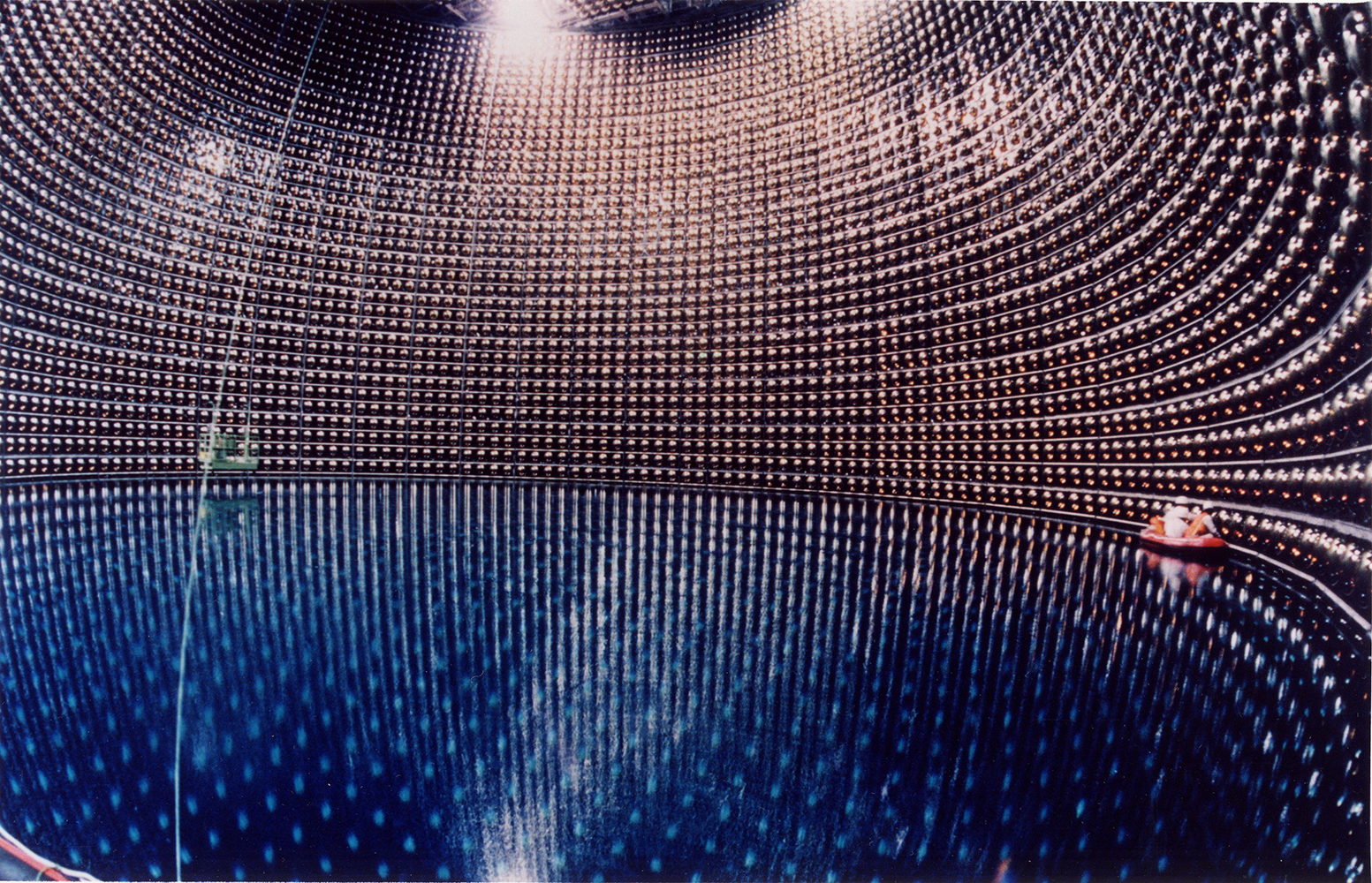
noun, plural neu·tri·nos. Physics.
- any of the massless or nearly massless electrically neutral leptons. There is a distinct kind of neutrino associated with each of the massive leptons.
noun plural -nos
- physics a stable leptonic neutral elementary particle with very small or possibly zero rest mass and spin 1/2 that travels at the speed of light. Three types exist, associated with the electron, the muon, and the tau particle
n.“neutral particle smaller than a neutron,” 1934, from Italian neutrino, coined 1933 by Italian physicist Enrico Fermi (1901-1954) from neutro “neuter” (see neuter (adj.)) + -ino, diminutive suffix. n. pl. neu•tri•nos
- Any of three electrically neutral subatomic particles in the lepton family.
- Any of three electrically neutral subatomic particles with extremely low mass. These include the electron-neutrino, the muon-neutrino, and the tau-neutrino.♦ The study of neutrinos that come to the earth as cosmic rays suggests that neutrinos can transform into each other in a process called neutrino oscillation. For this phenomenon to be theoretically possible, the three neutrinos must have distinct masses; for this reason, many scientists believe that they have mass. See Table at subatomic particle.
An electrically neutral particle that is often emitted in the process of radioactive decay of nuclei. Neutrinos are difficult to detect, and their existence was postulated twenty years before the first one was actually discovered in the laboratory. Millions of neutrinos produced by nuclear reactions in the sun pass through your body every second without disturbing any atoms.
 Liberal Dictionary English Dictionary
Liberal Dictionary English Dictionary